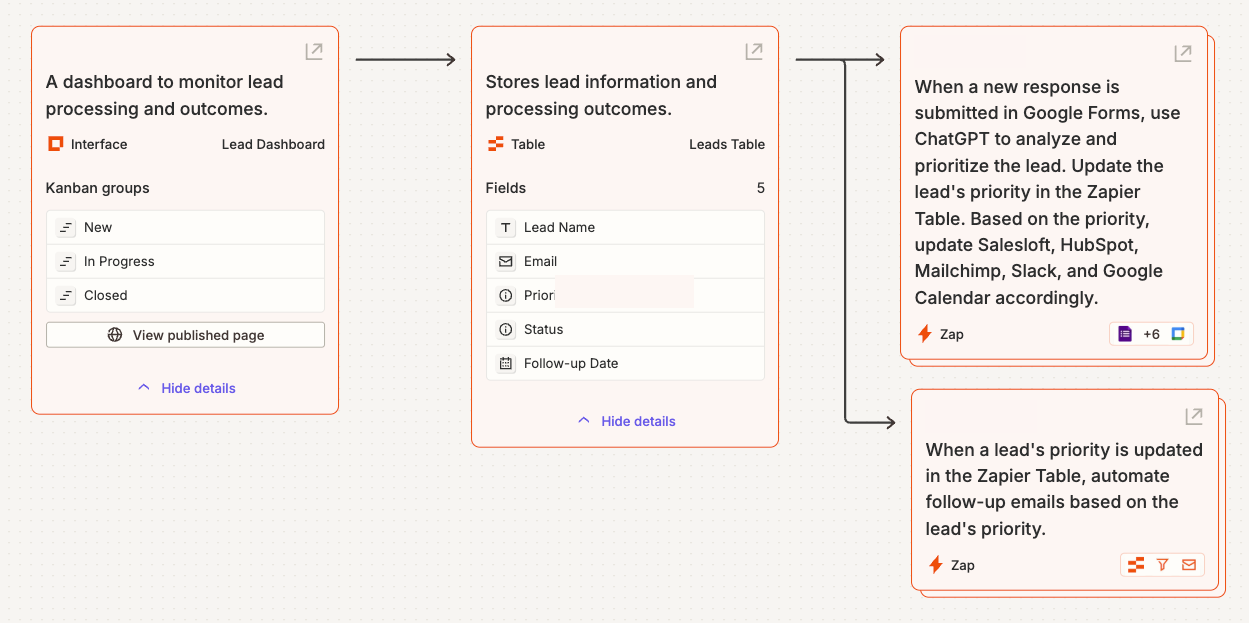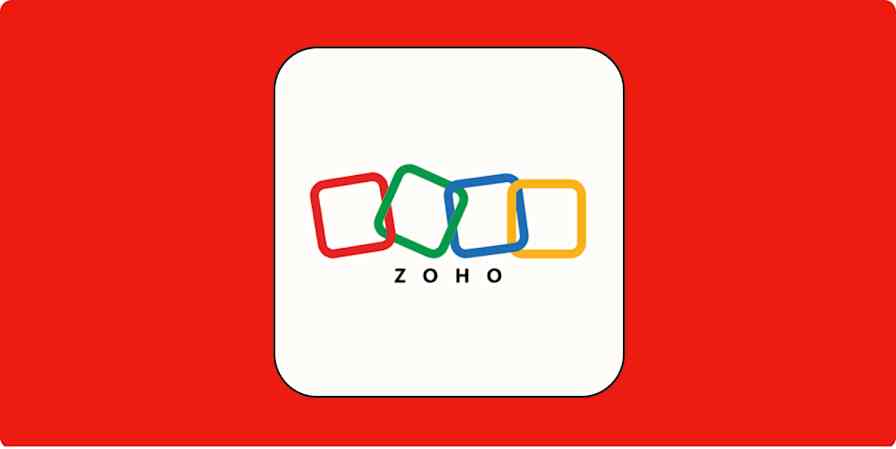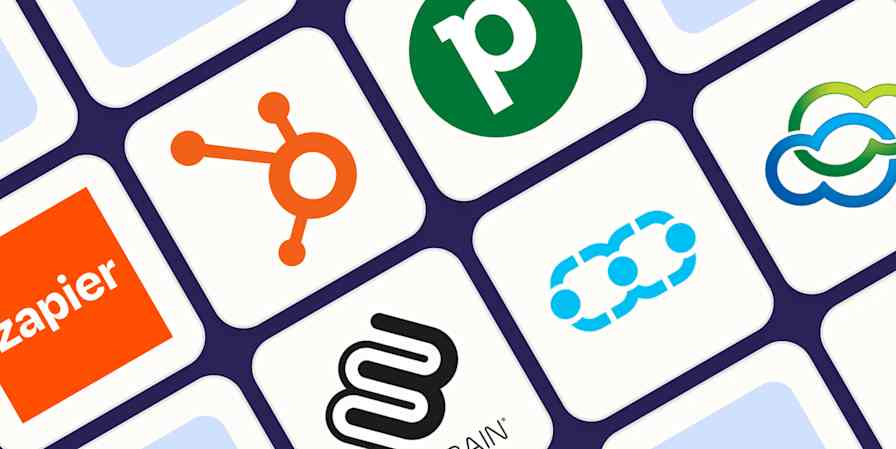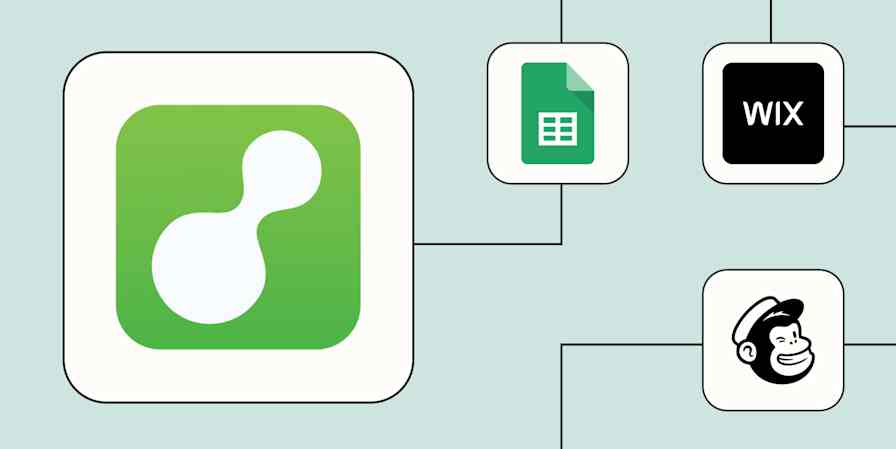RevOps is a new way of thinking about the customer experience. Instead of marketing, sales, and support teams working as separate entities, RevOps brings them together to deliver a more coordinated, collaborative approach to the customer lifecycle. And Salesloft—which offers pipeline management, conversation insights, and more in one platform—is now the tool of choice for many RevOps teams.
But RevOps also presents new challenges—like the fact that even with a central platform like Salesloft, not all the tools in your tech stack play well together. Your team still uses chat apps, calendars, and project management tools in their day-to-day work, and you need a way to connect those apps to Salesloft.
Zapier is a no-code platform that can connect Salesloft to thousands of apps—and empowers you to streamline your work through automated workflows called Zaps. Keep reading to learn how your team can automate Salesloft today.
Zapier is the most connected AI orchestration platform—integrating with thousands of apps from partners like Google, Salesforce, and Microsoft. Use interfaces, data tables, and logic to build secure, automated, AI-powered systems for your business-critical workflows across your organization's technology stack. Learn more.
Skip ahead
To get started with a Zap template—what we call our pre-made workflows—just click on the button. It only takes a few minutes to set up. You can read more about setting up Zaps here.
Get notifications for key Salesloft activity
Salesloft is great for giving you a unified view of prospect and customer activity—that is, if you spend your entire day in Salesloft. But most teams need to context-switch between other tools like email or Slack. With all that bouncing around, it can be easy to miss key Salesloft activity and updates.
Instead of trying to keep an eye out for new Salesloft developments, you can use automation to bring the activity to you. Let's say your team spends most of their time in Slack. You can create a Zap that sends a Slack notification to a specific channel whenever there's new Salesloft activity—like a new person or an updated meeting.
The best part? The Slack notification is fully customizable, so you can make sure it includes the most relevant information from Salesloft in a format that meets your team's needs.
Send Microsoft Teams notifications for new Salesloft contacts
Share Salesloft Meeting Updates in Microsoft Teams
Turn form responses into Salesloft contacts
Forms are a great way to collect new leads, demo requests, customer information, and more. They're also really versatile—you can have standalone forms, forms on your website, and even forms on digital ads. But forms also create a new problem: You have to get all of the data they collect into your source of truth app (in this case, Salesloft). If you've using several forms or collecting a large volume of responses, that quickly turns into a lot of data entry.
That's where automation can make a big difference in your workload. For example, you can create a Zap that takes new form submissions—regardless of where the form lives or what tool you used to create it—and adds them to Salesloft as new people. With an automated workflow like this one, you can both eliminate manual work and make sure Salesloft always has the most up-to-date information.
Create new Salesloft people from new Google Forms responses
Create new Salesloft persons from new Typeform entries
Create new Salesloft persons from new WPForms form entries
Create new Salesloft persons from new Squarespace Forms form submissions
Connect Salesloft to your email marketing app
For many businesses, email marketing is a key part of turning leads into actual customers. Not only does it let you stay in touch with prospects, but it gives you a chance to demonstrate real value by delivering interesting, relevant content to their inboxes.
Managing email marketing, however, is often a messy, time-consuming process. You need to keep all your lists up to date and properly segmented, so your emails actually get delivered to the right recipients. That requires a lot of repeated data entry—and the time it takes adds up fast.
Like other repetitive processes, automation can streamline the work of keeping your email lists up to date and organized. With Zapier, you can create an automated workflow that turns Salesloft people into new subscribers in your email marketing tool. The Zap can run every time there's a new person in Salesloft, but it can also trigger when there are changes to Salesloft accounts—like when a person's contact information is updated. That way, you always have the latest subscriber information.
Create new Mailchimp subscribers from newly created Salesloft people
Create new contacts in Constant Contact when new persons are created in Salesloft
Create or update Levitate contacts for new Salesloft persons
You can also create a Zap that does the reverse, adding new email subscribers to Salesloft. This automated workflow is a great option if your business does a lot of top-of-funnel email marketing—like an industry newsletter—and wants to further nurture those subscribers until they become customers.
Create new Salesloft persons for each new Mailchimp subscriber
If you need a little more sophistication in your Zap, you can modify it so it only adds engaged leads to Salesloft. What counts as "engaged" is up to you. For example, these templates use activity like link clicks or email opens to determine whether a subscriber is interacting with your email marketing.
Create new Salesloft persons when links are clicked in Mailchimp
Create a Salesloft person for each opened email in Constant Contact
Create new Salesloft persons whenever Bonjoro emails are opened
Keep Salesloft activity and your CRM in sync
For sales teams, the most crucial app is their customer relationship management (CRM) platform, which gives them a centralized place to track prospects and pipeline. If you're trying to unify sales with teams like marketing and support under the banner of RevOps, however, you don't want that CRM information to stay in a silo. But most teams have more valuable things to do than copy-pasting data between Salesloft and their CRM (or vice-versa).
Rather than rely on humans to do that repetitive data entry, you can use automation to keep your CRM in sync with Salesloft. For starters, you can create a Zap that adds key Salesloft activity—like new meetings or updated tasks—to your CRM. No matter which CRM you use, automated workflows mean your team can spend less time moving information around and more time closing deals.
Create or update HubSpot contacts when new or updated meetings occur in Salesloft
Manage new or updated Salesloft tasks by creating corresponding activities in Pipedrive
Tag Zoho CRM contacts based on Salesloft task activity
Schedule events and to-dos for new Salesloft contacts
RevOps is responsible for every part of the customer lifecycle—and that's a lot of activity to keep track of. Your team might be lucky enough to have project managers or administrative staff who can keep things moving, but with so much going on, it's easy for individual meetings and follow-ups to fall through the cracks.
When it comes to organizing projects, tracking tasks, and scheduling calls, automation can be an enormous help. With Zapier, for example, you can create an automated workflow that schedules customer calls for you, whenever there's a new or updated account in Salesloft.
Create Google Calendar events for new Salesloft persons
You can use a similar Zap to help manage tasks related to your Salesloft contacts. For example, you can use Zapier to automatically create new to-do list items or project management tasks based on key Salesloft activity. That way, you never forget an important follow-up or other task.
Create to-dos in Things for new persons created in Salesloft
Add new Salesloft contacts from any source
What if you're using an app that doesn't have an existing Zapier integration? You can use Webhooks by Zapier to connect Salesloft to any app with an API. For example, here's a template that will create a new person in Salesloft whenever Zapier catches a webhook—which is a great workaround if you're using a niche app to connect customer information.
Create new Salesloft persons when new Webhooks by Zapier hooks are caught
You can also connect Salesloft to a spreadsheet tool like Google Sheets—so you can turn new rows into Salesloft contacts, for example. This is a great option if a lot of your lead data ends up in a spreadsheet instead of an app.
Create new Salesloft persons from new rows in Google Sheets
Build a fully automated Salesloft system
To experience the full power of automation, you should start thinking in full systems instead of just simple two-step Zaps. Not only can you create multi-step Zaps that complete more than one action—think sending a Slack notification to your team and adding a prospect to your CRM—you can also use Zapier's full suite of automation tools like Zapier Tables and Zapier Interfaces to collect and store customer information, and more.
Using Zapier Canvas—our AI-powered workflow diagramming tool—we can visualize a full lead management system, with Salesloft at its heart.
When a new lead comes through a lead gen form, a Zap uses ChatGPT to analyze and prioritize the lead, update the lead in a Zapier table, add it to tools like Salesloft, HubSpot, and Mailchimp, plus send a notification in Slack and update the team's Google Calendar. Another Zap also triggers appropriate follow-up emails depending on the lead's priority. Meanwhile, everything is neatly stored in Zapier Tables, and a dashboard to monitor lead outcomes in Zapier Interfaces helps everyone stay on top of progress.
For many companies, RevOps is a smarter, more collaborative approach to the prospect and customer lifecycle. By connecting Salesloft to your other apps with Zapier, you can not only get to market faster—but also deliver a seamless customer experience that converts.










